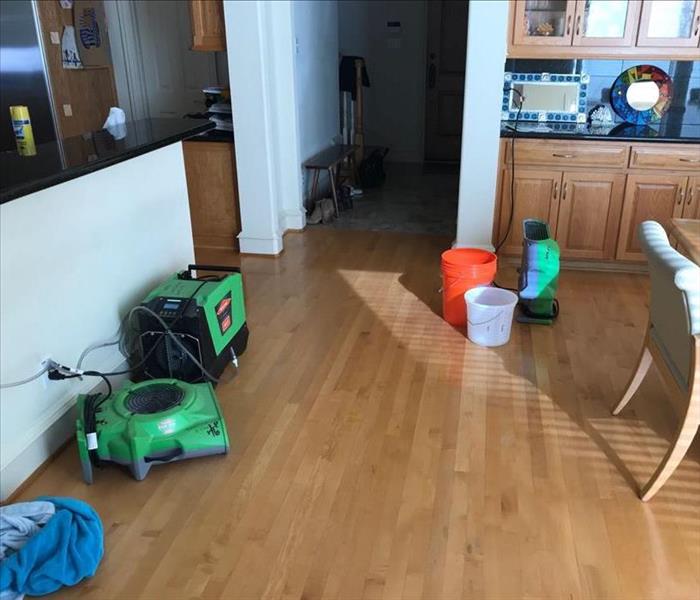Water Damage Cleaning Tips for Balch Springs
7/25/2023 (Permalink)
Dealing with water damage can be challenging and requires prompt action to prevent further damage and potential health hazards. Here are some general water damage tips to help you address the situation effectively:
1. Ensure safety: Before entering a water-damaged area, make sure it's safe to do so. Turn off electricity to the affected area to avoid the risk of electric shock.
2. Stop the source: If the water damage is caused by a leak or burst pipe, try to identify and stop the source of the water if it's safe to do so. This will help prevent additional water from entering the area.
3. Protect yourself: Wear protective gear, such as rubber gloves, boots, and a mask, when dealing with water damage, especially if the water is contaminated.
4. Remove standing water: Use a wet/dry vacuum, buckets, or mops to remove as much standing water as possible. The sooner you can extract the water, the better chance you have of minimizing damage.
5. Dry the area: Use fans, dehumidifiers, and open windows to promote air circulation and aid in the drying process. This helps prevent mold growth, which can begin within 24 to 48 hours after water damage.
6. Salvage valuable items: Remove furniture, personal belongings, and other items from the affected area to a dry location. Salvage what you can and discard severely damaged items.
7. Disinfect: If the water damage is caused by contaminated water (e.g., sewage backup or flooding), disinfect the area to prevent the spread of harmful bacteria and pathogens. Use a mixture of water and bleach (1 cup of bleach per gallon of water) for this purpose.
8. Check for hidden damage: Water can seep into walls, ceilings, and floors, causing hidden damage. Inspect these areas carefully and consider seeking professional assistance to ensure proper assessment and repair.
9. Avoid DIY repairs for extensive damage: While small water damage issues can often be handled on your own, extensive water damage may require the expertise of a professional water damage restoration company.
10. Contact your insurance company: If your home is covered by insurance, contact your insurance provider as soon as possible to report the water damage and inquire about coverage and the claims process.
11. Document the damage: Take photos and videos of the water-damaged areas and items. This documentation will be helpful for insurance claims and professional assessments.
12. Be vigilant for mold: Keep an eye out for signs of mold growth, such as a musty smell or visible mold patches. If you suspect mold, take immediate action to address the issue, as mold can be hazardous to health.
Remember that water damage can lead to structural issues and health risks, so it's essential to address the problem promptly and thoroughly. If you're unsure about how to handle the water damage or if the damage is extensive, don't hesitate to seek professional help from water damage restoration experts.




 24/7 Emergency Service
24/7 Emergency Service
